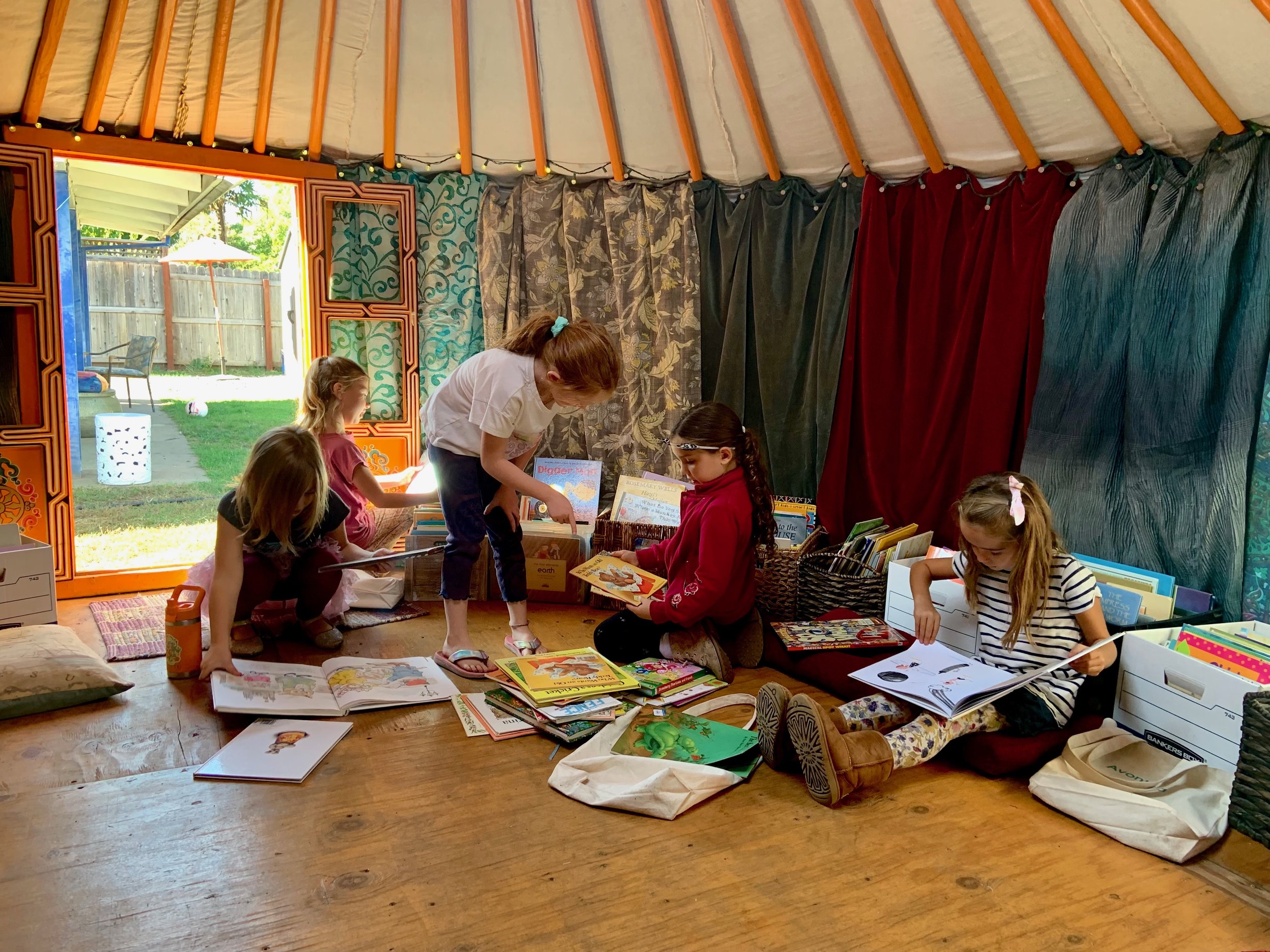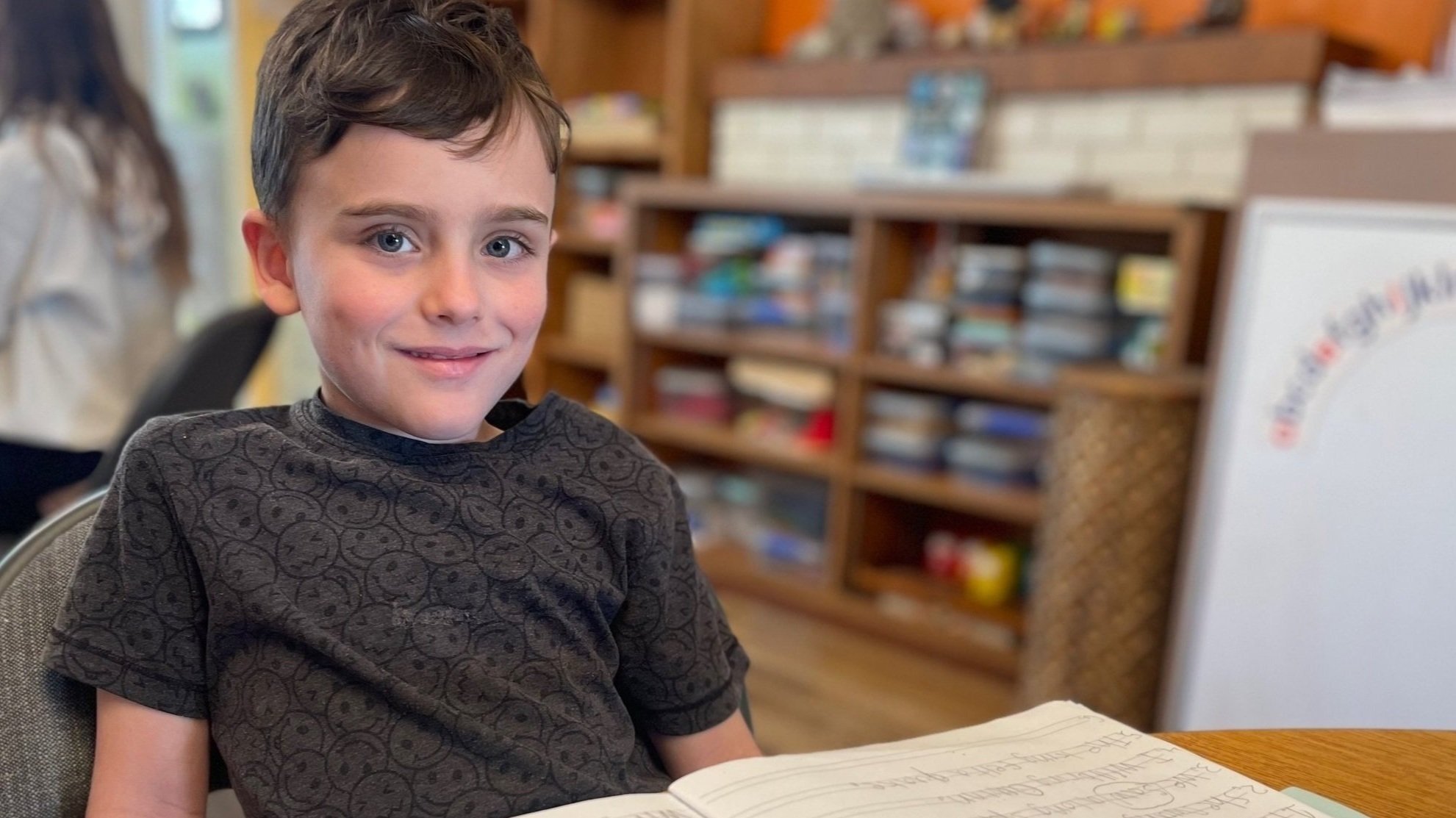
Effective literacy instruction makes all the difference.
We have a smarter approach to teaching literacy. We know how the English alphabet code REALLY works. We teach the sounds of our language as the foundation of the code, not ‘the alphabet.’ And it makes all the difference for beginning readers.
Tools and Training for Literacy instruction
In our little homeschool program, we’ve been developing curriculum for beginning readers. With engaging, developmentally appropriate instruction, we’ve helped hundreds of local kids gain success with education, and with life.
In our mission to help more children gain crucial reading and writing skills, Reading For Life is pleased to offer tools and training to teachers and homeschooling parents.
With our innovative and effective approach, we make learning - and teaching - logical and straightforward at each step of the way.
Teacher Training
I’m offering my introductory course in which I teach how the English alphabet code works, and how to teach it effectively.
You’ll learn why English has a complex spelling code. I’ll map its complexity, and teach you its inherent logic (yes, there is one!). Then you’ll learn how to teach in line with this logic. I’m going to outline the basics of teaching with a logical, linguistic approach. I’ll articulate the common pitfalls of literacy instruction, and how to avoid them.
I’m offering a comprehensive in-person training program to local schools in Butte County, California. Sign up for this introductory course, and I’ll come to your school site, where I’ll present to whatever size group you assemble. Then you can sign up to get my full 8 week training for all your K-2 teachers, teaching aides, reading specialists, and interested parents.
-Ms. Deva Deveaux
Curriculum
We’ve been mapping the English alphabet code for years, and discovering ways to teach all learners to be successful with it. Our curriculum sets include carefully curated sets of word cards that reveal English’s spelling patterns to students as read and sort them. Once they’ve done that, they use our worksheets to ingrain these patterns and learn a variety of lessons through writing.
We’re very close to releasing our ‘Beginning Reader Toolkit,’ a comprehensive set of curriculum. It’s highly suitable for classroom settings, and for homeschooling students. It’s as perfect for older dyslexic students as it is for beginning learners aged 5 and up.
The Beginning Reader Toolkit includes:
-a set of drawers containing 71 sets of laminated word cards
-a set of 11 worksheets that are adaptable to all the word card sets
-a teaching manual explaining how to use the materials
Join our mailing list to be notified when our curriculum is available.
Literacy Classes
The 24-25 School Year runs Sept 3, 2024 through May 30, 2025.
RFL 24-25 Parent Guidebook
Registration for the 24-25 School Year
RFL School Year Holiday Schedule
Pay Online for Services
Kindergarten: full - waitlist available
First Grade: full - waitlist available
Second Grade: 1 spot available
Third Grade: full - waitlist available
Individualized: full - waitlist available
Since 2017, we’ve been delivering innovative literacy instruction to hundreds of kids in Chico, California. We’re a husband and wife team, creating a dynamic language arts program for small groups of up to 8 children.
We delight in making learning fun and engaging. We educate the ‘whole child,’ the hands and heart, as well as the head. We cultivate a social environment in which children learn to respect, cooperate, and support their teachers and classmates. Memories are made, and friendships formed here.
With a strong emphasis on the nuts and bolts of the English alphabet code, we address all the areas of the Language arts content standards: Reading and Writing, Speaking and Listening, and Language.

Teachers and parents have questions.
Why is the English spelling code so complex?
What makes the Reading For Life curriculum different from other curriculums?
My child is ‘dyslexic.’ Is there something wrong with their brain?
My child has a learning disability. Can they still become a fluent reader and good speller?
What’s wrong with public school reading instruction?





